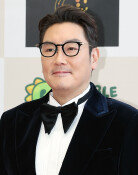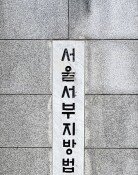Parliamentary Audit Reveals Many Pay Less Than They Should for Health Care
Parliamentary Audit Reveals Many Pay Less Than They Should for Health Care
Posted September. 28, 2005 07:35,
Mr. Cho, 48, subscribes to the national pension plan with the highest premium requirement (applied to monthly incomes over 3.45 million won). He pays a pension payment of 324,000 won every month.
Meanwhile, he pays only 4,428 won for his Category One health insurance, a price that usually only applies to individuals without any income or properties.
In short, people are trying to get a free ride by paying lower income-bracket health care fees.
The reason for the prevalence of such selfish behavior lies with the National Health Insurance Corporations (NHIC) mismanagement and the dual fee collection system for the national pension and health insurance. There needs to be an innovative measure to better identify the income level of individuals.
Selfish Health Care Consumers-
In a parliamentary audit of the NHIC, Grand National Party member Jeon Jae-hee noted that a survey of national pension subscribers revealed 114,458 employees from 59,000 workplaces subscribed to health insurance plans as dependents or local members.
When Jeon protested this, saying, Its illegal for an employee member of the national pension plan to be listed as a dependent on the health insurance plan, the NHIC executive director said, This happens when small-scale businesses do not join health insurance programs to stave off the cost of health insurance premiums.
However, Jeons data from the NHIC revealed that many large-company employees were also getting free rides in terms of health insurance payments. Although a KT employee, Choi, 40, had subscribed to the national pension plan on October 1, 2001, he was still listed as a local member of the health insurance plan. A Hyundai Engineering and Construction worker, Kim, 57, also was already listed as a member of the national pension scheme in July 2003 while registered as a dependent member of a health insurance plan.
Moreover, 108 people out of those who paid the largest national pension premium, grade 45, were paying less than 10,000 won monthly for health care. This is the price usually paid by those categorized as fifth grade pension plan subscribers or lower.
NHIC Mismanagement-
A NHIC spokesperson said, Mismatches occur because national pension payments are defined by income reports, while medical insurance premiums are set according to an income level confirmed by the National Tax Service. In order to bridge the gap, the two corporations are required to exchange databases with each other once a year.
The problem is that the two organizations have not shared information so far. The NHIC explained, We just formed a complete database network with the National Pension Corporation this June.
The NHIC was established in 2000 by integrating three organizations: the local medical insurance union, the medical insurance employees union, and the government employees and Korea teachers pension corporation. It currently has 227 local offices in 234 three administrative districts with 9,214 employees.
The state-run pension body, launched in 1987, has 89 branches and 4,790 employees nationwide.
In Europe, the Social Insurance Agency takes full charge of collecting national pension and health insurance fees.
Reckless Management-
The parliamentary audit also condemned the reckless management of the NHIC.
Grand National Party (GNP) lawmaker Bahk Jae-wan asked, Why is the NHIC still insisting on maintaining one local office in each major administrative district while their overall workload has been reduced thanks to the computerization of major works, such as subscriber qualification management, since 2000? He also pointed out, The 104 tax offices are performing their works more efficiently.
Lawmaker Ko Kyung-hwa (GNP) also complained, saying, Why are there up to 78 labor union retirees on the list when the number must be 11 according to government standards?







